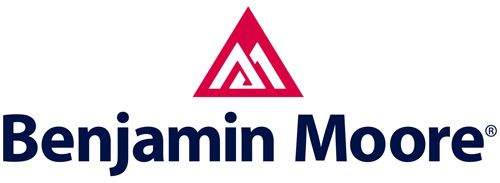The primer you choose ensures that your topcoat adheres and displays as it should. You want the best results for your effort, and we’re here to help guide you in choosing the perfect paint primer for your project.
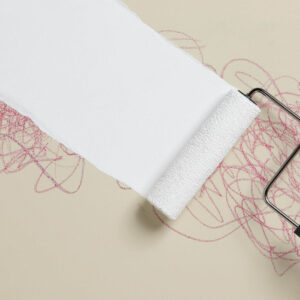 Do I Need to use Primer?
Do I Need to use Primer?
Not all projects require priming, especially with Benjamin Moore’s self-priming paint products. Assess the condition of your surface before choosing a primer. If the surface is previously painted and in good condition, priming may not be necessary. However, certain painting scenarios, outlined below, strongly recommend the use of a primer.
• Unpainted surfaces or substrates
• Bare PVC or composite materials
• Surfaces sanded down to the bare substrate due to damage
• Surfaces with rust or stains
• Projects involving dramatic color changes or if using a crisp/clean white
• Hard-to-coat substrates such as plastic, laminate, glass, high-gloss, or non-porous surfaces
Which Primer Do I Use?
Selecting the right primer is crucial once you’ve confirmed the need for priming. A suitable primer streamlines processes, covering everything from stain suppression to ensuring proper adhesion, enhancing both performance and aesthetics for your finish coat. Here’s a brief guide to help you choose:
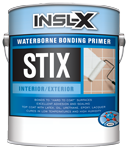 Specialty Primers:
Specialty Primers:
Recommendation: Stix Primer
Best for: Critical adhesion needs; ideal as a base for Advance paint on furniture or cabinets. Suitable for non-porous surfaces where sanding is not possible, as well as challenging surfaces like ceramic wall tile, glass, previously painted substrates with a high-gloss coating, or exterior PVC surfaces such as decorative outdoor moldings.
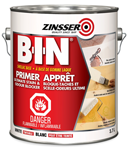 Shellac-Based Primers:
Shellac-Based Primers:
Recommendation: Zinser BIN
Ideal for: Extreme smoke and water damage or sealing knots on bare wood.
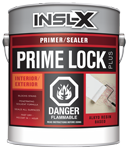 Oil-Based Primers:
Oil-Based Primers:
Recommendations: Fresh Start or Prime Lock
Effective for: Problem-solving, such as heavy smoke and water damage, under surface adhesion issues, new wood or over non-removeable wallpaper.
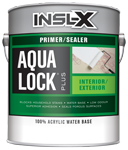 Water-Based Primers:
Water-Based Primers:
Recommendations: Fresh Start and Aqua Lock
Suitable for: Lighter smoke and water damage, sealing tricky substrates.
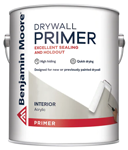 Latex Drywall Primers:
Latex Drywall Primers:
Recommendation: Benjamin Moore Drywall Primer
Use as: Base coat on new drywall.
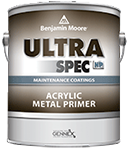 Rusty Surfaces:
Rusty Surfaces:
Recommendations: Ultra Spec® HP Acrylic Metal Primer for treated metals (galvanized or aluminum), Super Spec for bare metals (ferrous).
Best for: Metal surfaces that have some rust damage.
Other Things to Know
When priming a previously painted surface, determine the type of coating (acrylic vs. alkyd) to choose the most suitable primer and paint. Identify the paint type by rubbing a cotton ball dipped in 70% isopropyl alcohol on the surface – if the test area looks cleaned and paint does not come off, it’s alkyd-based; if it the test area dulls or the paint is removed, it’s acrylic/water based.
Alkyd (Oil-based) or Acrylic Primer?
Acrylic primers offer easy application, water clean-up, and versatility across various surfaces like wood, laminate, and metal, excluding those with rust issues.
Alkyd (oil-based) primers excel in stain blocking, particularly for tannin-rich woods, rust, smoke, or water stains. They are ideal for both interior and exterior bare wood, ensuring lasting adhesion by penetrating porous surfaces. Alkyd primers are recommended after removing wallpaper to seal residual adhesive.
Want to Know More? Read this detailed article by Benjamin Moore, How to Choose the Best Primer >>
More questions? We’re here to help! Stop by your local Paint Shop to get expert advice from our staff. Find a location near you. >>
